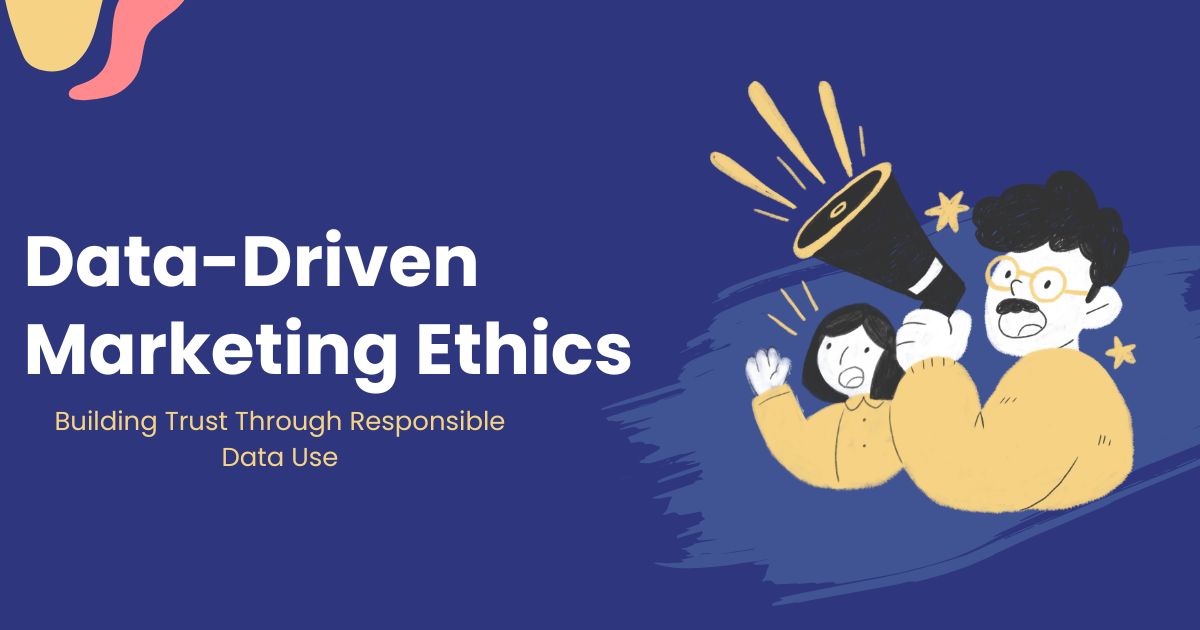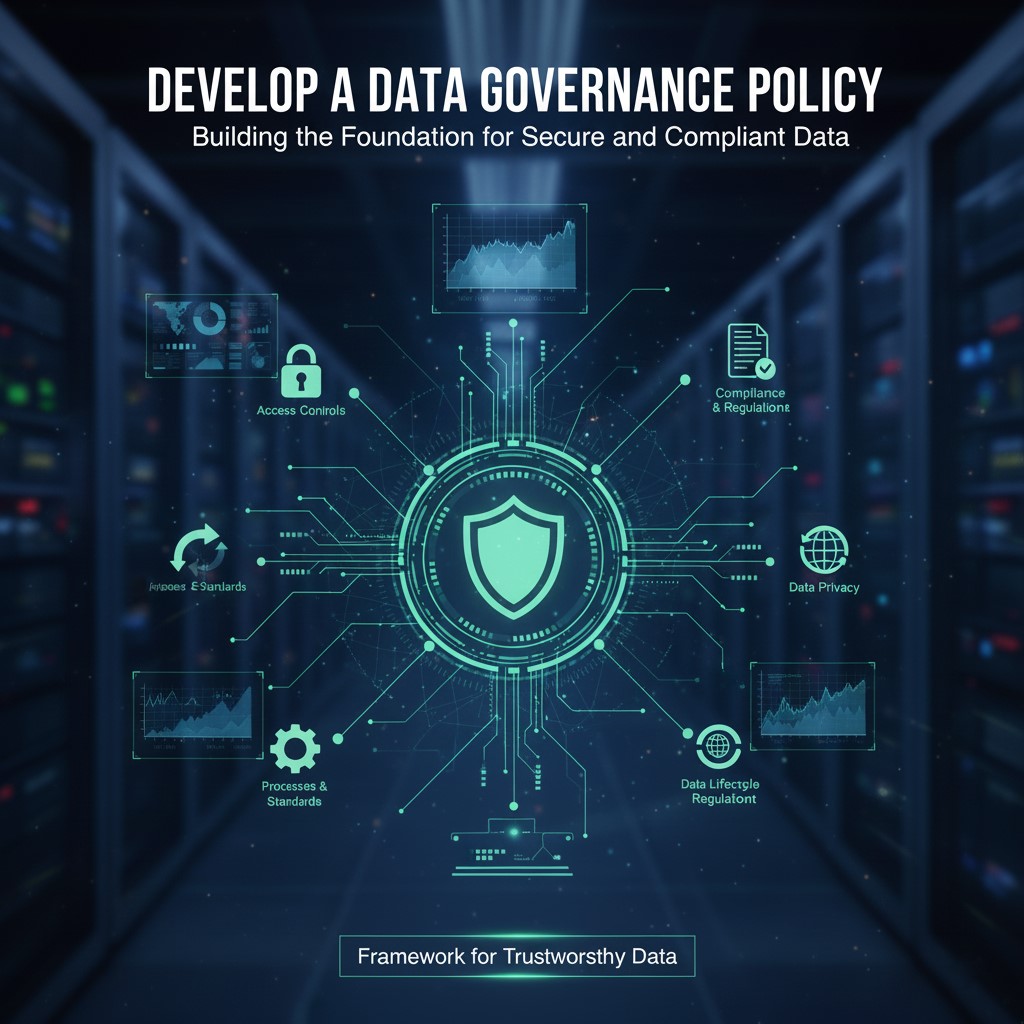
Ethical data-driven marketing builds trust by prioritizing transparency, consent, and secure data use. With AI and personalization on the rise, brands that follow responsible data practices reduce risk, strengthen customer relationships, and stay competitive in a privacy-focused future.
In today’s digital age, data-driven marketing has revolutionized how businesses engage with their audiences. By leveraging customer data points—from demographics and browsing behavior to purchase history and social media engagement—marketers can craft highly personalized campaigns that resonate more deeply than ever before. Yet with great power comes great responsibility. As organizations collect and analyze vast amounts of consumer information, ethical considerations around privacy, transparency, and consent have moved from the periphery to the forefront of strategic planning.
By 2025, the volume of consumer data is projected to exceed 180 zettabytes globally. This exponential growth presents both opportunity and risk. Organizations that place ethical considerations at the heart of their data strategy not only avoid costly missteps but also create competitive differentiation.
Why Ethical Considerations Matter
Ethics in data-driven marketing is not just about legal compliance; it’s about building and maintaining trust with your customers. When consumers feel their data is handled responsibly, they are more likely to share information, engage with marketing messages, and remain loyal to a brand. Conversely, misuse or mismanagement of personal data can lead to reputational damage, regulatory fines, and loss of customer confidence.
Recent high-profile data breaches and scandals have eroded public trust in brands, underscoring the importance of proactive ethical frameworks. When a single misstep can make headlines, taking a principled approach to data is not optional—it’s essential. Companies leveraging automation should consider solutions like AI data entry automation: your complete guide to reduce human error while respecting data privacy

Core Principles of Ethical Data-Driven Marketing
- Transparency: Clearly communicate what data you collect, why you collect it, and how it will be used.
- Consent: Obtain explicit, informed consent before gathering personal or sensitive information.
- Data Minimization: Collect only the data points you genuinely need to achieve marketing objectives.
- Accuracy: Regularly audit and cleanse datasets to ensure reliability and reduce bias.
- Security: Implement robust technical and organizational measures to protect data from unauthorized access.
- Accountability: Establish governance frameworks and assign clear ownership for ethical decision-making.
Implementing Ethical Practices in Your Data Framework
Integrating ethics into your data-driven marketing strategy requires a multi-layered approach. Here are actionable steps to ensure responsible data use:
Develop a Data Governance Policy
Define roles for data collection, storage, processing, and sharing. Maintain a data catalog to track access controls and compliance. Learn mastering data-driven marketing in 5 easy steps for practical implementation tips.

Conduct Privacy Impact Assessments
Before launching any new data initiative, evaluate the potential privacy risks and implement measures to mitigate them. This proactive assessment fosters a culture of responsibility and foresight. Consider questions like: What types of data are collected? How might this information be used beyond its original purpose?
Implement Consent Management Tools
Use CMPs to manage user preferences transparently. How AI data-driven marketing is reshaping customer engagement highlights the role of automation in consent and personalization.
Train Your Team
Ensure that marketing, legal, and IT teams understand ethical guidelines and data protection principles. Regular training sessions help keep data ethics top of mind. Role-based workshops and real-world scenarios can increase awareness and accountability.
Leverage Privacy-Enhancing Technologies
Explore techniques like anonymization, pseudonymization, and differential privacy to extract valuable insights without exposing personally identifiable information. Evaluate advanced options such as homomorphic encryption to analyze encrypted data securely.
Case Studies: Brands Leading with Ethical Data Practices
- Brand A: Implemented a transparent consent framework, boosting user opt-in rates by 40%, email engagement by 25%, and customer satisfaction scores by 18% within six months.
- Brand B: Adopted differential privacy methods to analyze behavior without compromising personal details, leading to a 15% uplift in targeted ad ROI and a 20% reduction in data breach risk.
- Brand C: Launched educational campaigns on data usage and privacy, resulting in a 30% increase in brand advocacy, positive customer reviews, and a 10% drop in support inquiries related to privacy concerns.
Measuring the Impact of Ethical Marketing
Track metrics such as opt-in/opt-out rates, customer trust scores, data quality, regulatory audits, and business outcomes. These measurements tie ethics directly to growth. Integrating insights from analytics and data-driven marketing: your guide to success ensures that decisions are evidence-based.
To gauge the success of your ethical data strategy, monitor these key performance indicators:
- Opt-in/Opt-out Rates: Track how many customers are granting or revoking consent.
- Customer Trust Scores: Use surveys and Net Promoter Score (NPS) to assess brand perception.
- Data Quality Metrics: Measure the accuracy and completeness of your datasets over time.
- Regulatory Audit Results: Record compliance findings and remediation efforts.
- Business Outcomes: Correlate ethical practices with revenue growth, customer retention, and campaign performance.
- Privacy Incident Reports: Track the number and severity of data-related incidents to assess risk.
Building an Ethical Data Culture
Embedding ethics into everyday workflows ensures that responsible data use is sustainable and scalable. Consider these strategies:
- Leadership Commitment: Executive sponsorship signals that ethics is a strategic priority, not just a compliance checkbox.
- Cross-Functional Committees: Establish working groups with representatives from marketing, legal, IT, and customer service to review new data initiatives.
- Ethics Champions: Identify data ethics champions in each department to advocate best practices and review projects.
- Open Communication Channels: Encourage employees to report ethical concerns without fear of reprisal, using anonymous hotlines or feedback platforms.
Challenges and How to Overcome Them
Integrating ethics into data-driven marketing isn’t without obstacles. Common challenges include:

- Complex Regulatory Landscape: Stay updated on evolving laws by consulting legal experts and leveraging compliance software.
- Cross-Functional Alignment: Foster collaboration between marketing, legal, and IT teams through regular workshops and shared objectives.
- Data Silos: Break down organizational silos by creating centralized data platforms with clearly defined access controls.
- Consumer Skepticism: Invest in transparent communication strategies that educate users about data benefits and safeguards.
- Data Overload: Prioritize critical data by aligning collection efforts with defined business objectives to avoid analysis paralysis.
Future Trends in Ethical Data-Driven Marketing
As technology advances, new frontiers in ethical marketing will emerge:
- AI Ethics Frameworks: Developing guidelines to ensure AI-powered personalization respects human values, reduces bias, and protects privacy.
- Decentralized Data Models: Leveraging blockchain and edge computing to give customers more control over their data and foster transparent data marketplaces.
- Real-Time Consent Management: Empowering consumers to adjust their data preferences dynamically across platforms and devices, enhancing trust through immediacy.
- Ethical AI Auditing: Conducting regular third-party assessments of machine learning models for bias, fairness, and privacy risks, with transparent audit reports.
The Human Side of Data Ethics: Balancing Personalization with Privacy
As brands strive to deliver highly personalized customer experiences, the challenge lies in balancing relevance with respect. Consumers appreciate content that reflects their needs, but they also want control over how their information is used. When personalization becomes too accurate or invasive, it can create discomfort rather than engagement. Ethical data-driven marketing requires companies to recognize this fine line and design experiences that feel supportive rather than intrusive. The human element must remain central: marketers should continuously evaluate whether their personalization methods enhance user experience or inadvertently compromise the user’s sense of autonomy. Building thoughtful boundaries creates a healthier, trust-based relationship where customers feel understood without being monitored.
The Psychological Impact of Ethical Data Practices

Consumers aren’t just evaluating your brand based on product quality—they’re judging how your company behaves behind the scenes, especially regarding data. Ethical data practices shape public perception at an emotional and psychological level. When brands openly communicate data policies, show transparency in preference centers, or simplify privacy explanations, customers develop a sense of empowerment. This emotional reassurance reduces fear and skepticism. Conversely, vague disclosures and aggressive data collection tactics create tension and doubt. Every interaction contributes to an overall feeling about the brand, influencing long-term loyalty more deeply than most marketing campaigns. Ethical data behavior signals integrity, and in a world overflowing with digital noise, integrity becomes a competitive differentiator.
Ethics in AI-Driven Marketing Automation
As machine learning and AI systems take over tasks like segmentation, predictive modeling, and personalized recommendations, ethical concerns grow more complex. AI’s strength lies in identifying patterns humans may miss, but these same patterns can unintentionally reinforce stereotypes or create discriminatory outcomes. Ethical marketing requires brands to interrogate their algorithms, understanding how models make decisions and which datasets influence them. Regular audits ensure that automated systems do not marginalize groups or prioritize profits over fairness. Transparency also plays a crucial role: customers have a right to know when AI is used to make decisions about them. Ethical AI systems elevate customer experience while safeguarding their dignity, privacy, and equal access.
The Role of First-Party Data in Ethical Marketing
As third-party cookies fade and privacy laws tighten, brands are shifting toward first-party data—information collected directly from customer interactions. This transition marks an important evolution in digital marketing: it encourages more honest and consensual relationships between brands and consumers. First-party data is inherently more ethical because it’s acquired transparently and used for clearly communicated purposes. When combined with strong consent frameworks, it allows businesses to personalize responsibly while reducing reliance on opaque tracking methods. Companies that invest in strong first-party ecosystems—such as preference centers, loyalty programs, and interactive experiences—are positioning themselves for a future where trust becomes the ultimate currency.
Ethical Storytelling in Data Communication
One of the most overlooked aspects of ethical marketing is how brands communicate their data practices to consumers. Many privacy policies are written in dense legal jargon, leaving users confused and frustrated. Ethical storytelling transforms these mandatory documents into accessible, human-focused narratives. By framing data usage through real-world scenarios, clarifying benefits, and presenting information visually, brands can help consumers feel more informed and in control. This approach not only improves compliance but also strengthens customer relationships by fostering transparency. When consumers understand the story behind their data, they engage more willingly and confidently with marketing touchpoints.
Long-Term Business Value of Responsible Data Use
Ethical data-driven marketing is often perceived as a compliance requirement, but its long-term business value is far greater. Responsible data practices lead to cleaner datasets, which improve the accuracy of analytics and decision-making. They reduce the risk of costly breaches or regulatory penalties, protecting brand reputation. They also increase customer lifetime value by fostering trust and loyalty, encouraging users to share more high-quality information over time. Companies that prioritize ethics cultivate stronger brand affinity, attract privacy-conscious audiences, and build a culture of respect that resonates across channels. Ultimately, ethical data strategies deliver a compounding return on investment by strengthening the foundation upon which all marketing activities rely.
Global Variations in Data Privacy and What Marketers Must Understand
Data protection isn’t universal; every region has its own set of laws, cultural expectations, and enforcement levels. In Europe, GDPR emphasizes individual rights and explicit consent. In California, the CCPA prioritizes transparency and consumer control. Meanwhile, countries across Asia-Pacific are rapidly developing their own frameworks. Ethical marketers must understand these differences not simply to avoid penalties, but to respect the cultural contexts behind them. Recognizing these nuances ensures that marketing strategies reflect local expectations while adhering to universal principles of respect and fairness. Global brands must develop adaptable frameworks that remain consistent in values yet flexible in execution.
Conclusion
In the race to harness data for marketing gain, ethical considerations must not be an afterthought. By embedding transparency, consent, minimization, and security into every stage of your data lifecycle, you not only remain compliant with regulations but also cultivate deeper, more trusting relationships with your customers. Ultimately, ethical data-driven marketing is not just responsible—it’s a competitive advantage that drives sustainable growth and long-term loyalty.
Frequently Asked Questions (FAQ)
Why is ethical data-driven marketing becoming more important today?
Ethical data-driven marketing is gaining prominence because consumers are more aware than ever of how their data is collected and used. With high-profile breaches, stricter regulations, and increased digital surveillance, people expect brands to behave responsibly. Ethical marketing isn’t just a moral obligation—it’s a core component of trust, loyalty, and long-term business sustainability.
How does ethical marketing impact customer relationships?
Customers who feel respected and protected naturally develop deeper trust in a brand. When companies clearly communicate how they handle data, give consumers real control, and protect their privacy, customers respond with greater openness and loyalty. Ethical marketing makes users feel safe, and safety is one of the strongest drivers of long-term engagement.
Can ethical data practices still deliver strong personalization?
Yes—ethical practices actually enhance personalization. When customers willingly share accurate information, personalization becomes more aligned with their real needs. Ethical data processes reduce noise, improve targeting accuracy, and create experiences that feel helpful rather than intrusive. Responsible marketing and effective personalization complement each other.
What happens if a brand ignores data ethics?
Ignoring data ethics exposes businesses to a range of risks: legal penalties, reputational damage, customer churn, reduced engagement, and loss of market trust. One mistake—such as a mishandled data breach or non-transparent tracking—can overshadow years of positive branding. Ethical shortcuts may deliver short-term gains but lead to long-term consequences.
How can companies maintain transparency without overwhelming users?
Transparency doesn’t mean flooding users with technical details. Brands should communicate in clear, human language, offering layered information so users can dig deeper if they choose. Visual explanations, interactive preference centers, and simplified summaries help users understand what’s happening without feeling burdened.
Is AI a threat to ethical marketing?
AI becomes a threat only when used without oversight. With proper governance, auditing, and human supervision, AI can support ethical marketing by identifying patterns, improving personalization, and protecting privacy. The key lies in responsible implementation—ensuring fairness, avoiding bias, and maintaining user autonomy.
How do companies balance business goals with ethical responsibility?
Balancing ethics and business success begins with a value-driven culture. When leadership prioritizes respect, transparency, and fairness, these values guide every marketing initiative. Ethical practices reduce risk, improve data quality, and strengthen trust—ultimately supporting long-term profitability. Ethical behavior and business growth go hand in hand.
Leave a Reply